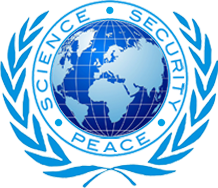Managing the Risks of Global Climate Change for Social Conflicts
Aftab Ahmad Chattha, Ph.D.
Abstract
The latest developments in stem cell research have shown that adult neuronal cells can be reprogrammed and transformed back into stem cells, thus effectively reversing the aging process. This research opens the door to enormous possibilities for improving human health and longevity.
One of the gravest effects of climate change may be human migration. Climate change is leading to significant long-term variations: heat absorption, faster melting, rising seas, ocean acidification, etc. The twelve industrial countries pouring the majority of CO2 into the atmosphere are less vulnerable to the effects than countries in Africa, India, etc.
We have already seen thousands of deaths from storms, floods, and extreme temperatures. Climate change leads to migration, competition for resources, and therefore conflict, either interpersonal or intergroup. Research projections indicate that a 2° rise in temperature by 2050 will lead to a 40% increase in conflict. Many fragile cities are already affected by urban violence, poverty, and disaster, and the impacts of climate change will increase these issues.
Solutions: First, we have to adapt ourselves so that there is less need for migration. Second, we need to develop sustainability, green practices, etc. Third, we need to reduce and manage climate change—to adapt and mitigate. These solutions can lead to peace in society, when everyone is allowed to grow, prosper, and fulfill his or her legitimate needs in a conducive environment.

